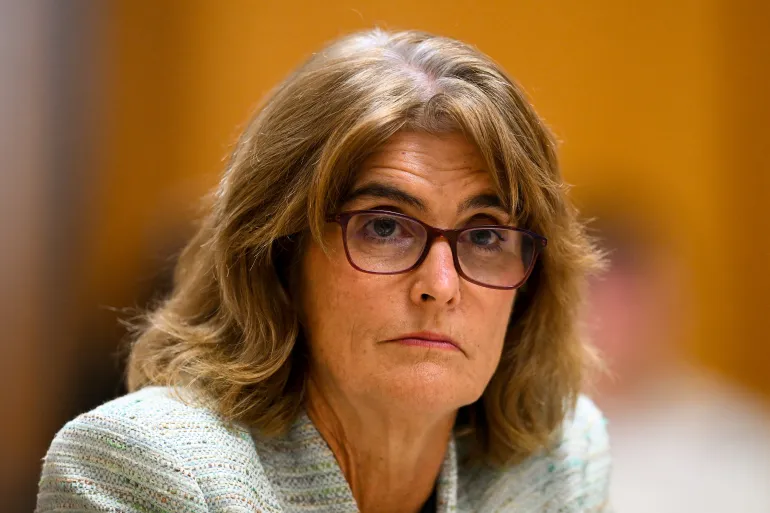RBA Incoming governor, Michele Bullock, has said that global heating will present the Reserve Bank with “acute” challenges, including heightened uncertainty around how the climate will change and the resulting impacts on the economy and financial system.
Bullock, who was deputy RBA governor before her elevation to the top post on 18 September, used her Sir Leslie Melville lecture at the Australian National University on Tuesday – after a brief disruption from protesters – to detail how the central bank was preparing for a warming world and the increased risk of extreme weather events.
She said that while monetary policy makers were familiar with dealing with supply shocks – such as Covid or Russia’s war on Ukraine – the potential for prolonged disruptions posed new challenges. On the other hand, there were also uncertainties about technology and the speed with which climate, economic and social systems could adapt.
“Climate change and the actions taken in response will have broad-ranging implications for the economy, the financial system and society at large,” Bullock said, including affecting price stability, employment and stability of the financial system.
“The timing and intensity of effects are uncertain, and these could be severe and irreversible if tipping points are reached,” she further stated.
Bullock’s comments are said to echo some of the issues raised in the federal government’s Intergenerational Report released last Thursday that found climate change posed “profound” risks. Threats ranged from billions of dollars in lost productivity as high temperatures inhibit safe work to decreased crop yields and more costly disasters.
They also follow recent work by bank officials and researchers into the physical risks from a more chaotic climate but also the financial disruption and opportunities as the world shifts away from fossil fuels into renewables and other low-carbon industries.
“Unemployment could be persistently higher if people are unable or unwilling to leave a region that has suffered from extreme weather and related job losses,” Bullock said. “Climate impacts vary significantly across regions – an impact may be small in aggregate, but extreme for a local community.”
She explained that while actions taken to reduce emissions may present adjustment costs, they will also present opportunities.
“Indeed, while there is much uncertainty in this area, there is general agreement that a timely and orderly transition will be the less costly approach in the long run,”she said.
Among the areas of “much uncertainty” was how coal-fired power plants exited the grid in coming decades.
Story was adapted from the Guardian.
